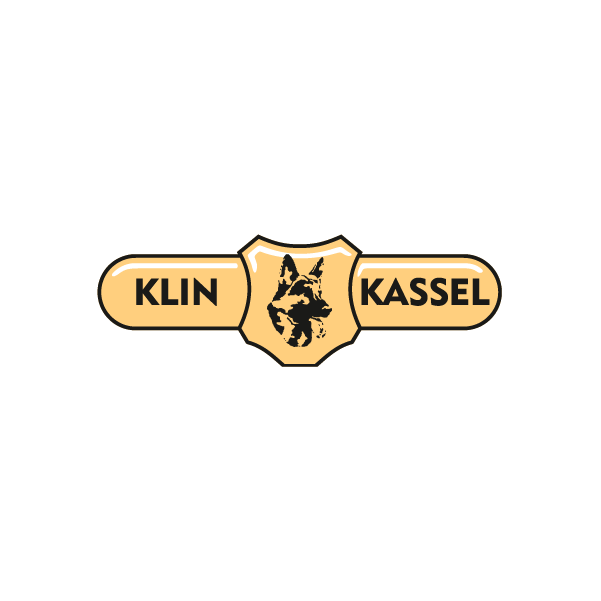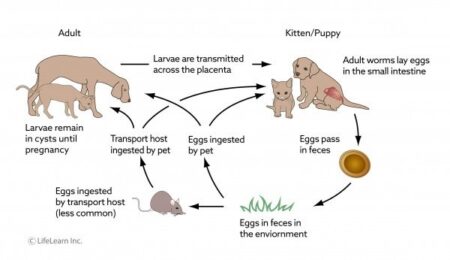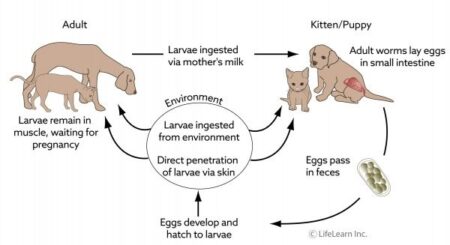How many kinds of internal Parasites are there?
In cats:

- Roundworms Toxocara cati, Toxascaris leonina
- Hookworms Ancylostoma species
- Tapeworms Dipylidium caninum, Taenia species
- Heartworms Dirofilaria immitis
In Dogs:
- Roundworms Toxocara cati, Toxascaris leonina
- Hookworms Ancylostoma species
- Tapeworms Dipylidium caninum, Taenia species, and Echinococcus species
- Heartworms Dirofilaria immitis
- Whipworms Trichuris vulpis
What will happen if my Pet gets worms?
Roundworms:
If a growing kitten/Puppy is infected with a large number of roundworms, the worms can stunt the growth, cause serious digestive upset, and result in excessive gas formation. These kittens/Puppies often have a characteristic ‘pot-bellied’ appearance.
Roundworms are free-living in the intestines. Roundworms do not require an intermediate host to spread from cat to cat or dog to dog but can be transmitted by ingesting the eggs that are passed in the feces of an infected cat or Dog
Hookworms:
Hookworms are one of the most significant intestinal parasites of Cat and dog. The hookworm is approximately 1-2 cm long and attaches to the lining of the small intestines, where it feeds on blood. As a result of this blood-sucking, hookworms can cause severe anemia.
The infective larvae enter the host either by mouth or through the skin, particularly the feet. Eczema and secondary bacterial infection can result due to irritation as they burrow through the skin.
Tapeworms:
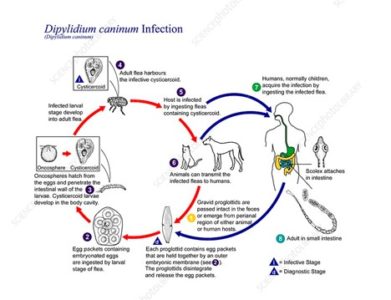
Dipylidium caninum, the most common tapeworm of the cat and dog, causes few problems in the adult cat and dog, but can cause digestive upsets and stunting of growth in kittens and puppies. The intermediate host of Dipylidium is the flea; cats and dogs get tapeworm by eating an infected flea.
.
“The intermediate host of Dipylidium is the flea; cats and Dogs get tapeworm by eating an infected flea.”
Echinococcus is important because it is zoonotic, meaning it can infect humans. The adult tapeworm is tiny, only about (5-6 mm) long. Sheep and sometimes humans can act as the intermediate hosts for Echinococcus, with the immature forms of Echinococcus developing inside various organs of these species. Echinococcus is a risk to cats and Dogs that live in close proximity to sheep.
Heartworms:
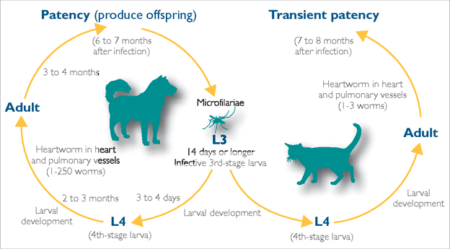
The typical clinical signs of heartworm infection are fatigue, coughing, and poor physical condition. Heartworms are large worms reaching (15-36 cm) long. They are primarily located in the right ventricle of the heart and adjacent blood vessels.
Whipworms:
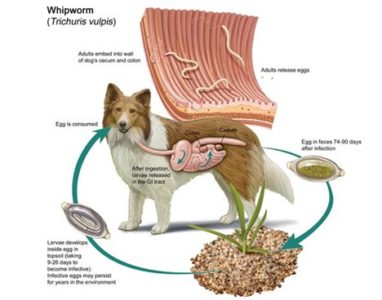
Click here to learn about Deworming your animal to avoid & possibly cure internal parasite problem









